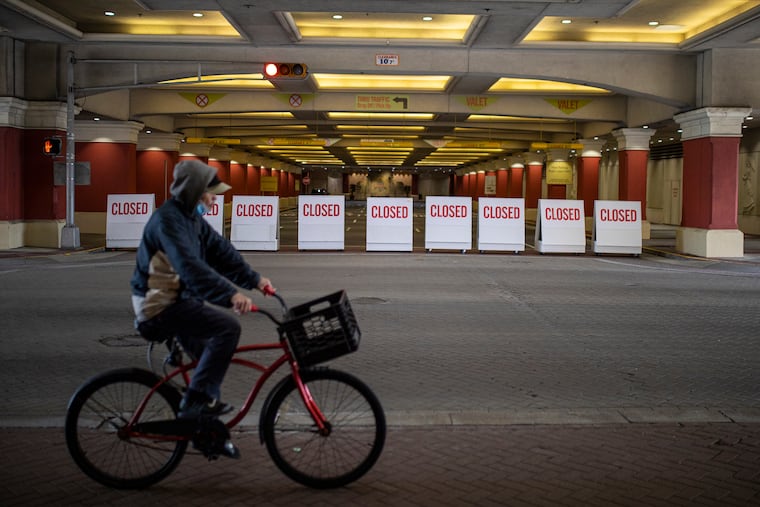The Atlantic City area’s retail property market is more vulnerable to a coronavirus downturn than anywhere else in the U.S., report says
The findings underline the difficulties faced by landlords in communities reliant on a retail sector that has gone largely dormant amid efforts to contain the coronavirus.

The Atlantic City area is more susceptible to a retail real estate downturn from the coronavirus than anywhere else in the country because of how much its economy relies on shop and restaurant workers, according to a study released this week.
More than a third of non-farm workers in Atlantic City and its Atlantic County neighbors are employed in the retail and food-service industries, more than any other metropolitan area in the country, according to the report by Millionacres LLC, a real estate focused division of personal-finance website Motley Fool.
The findings underline the difficulties faced by landlords in communities reliant on a retail sector that has gone largely dormant amid efforts to contain the coronavirus, according to the study’s authors, who relied on data from the federal Bureau of Economic Analysis and Moody’s Analytics.
“Nationwide, retail workers account for about 10% of the total workforce‚” the study’s authors wrote, citing Labor Department data. “But the share of the workforce employed by nonessential businesses is much higher in specific metro areas, exposing retail property landlords and investors with holdings in these markets to even greater risk.”
Atlantic City’s core retail district is around the Tanger Outlet center along Michigan Avenue, near the city’s convention center. Outside Atlantic City itself, much of the area’s shopping is concentrated in Mays Landing at the Hamilton Mall and surrounding big-box shopping districts.
» READ MORE: Philly-based hotel owner Hersha joins other firms in opting out of virus-relief loans for small businesses
A large segment of the Shore area’s consumers are part-time residents and visitors to its casinos and beaches, with leisure time to shop and dine out, which accounts for the heavy concentration of retail establishments relative to other workplaces, said Tony DiDidio, a broker concentrating on South Jersey with the real estate services firm Colliers International.
“Millions of people pass through this county every year visiting the casinos,” he said. “Now, of course, all retail is struggling because they’re not open.”
Other areas seen by Millionacres as particularly vulnerable include the Myrtle Beach area of South Carolina (41% retail and food-service employment), the Las Vegas area (30%), and the Crestview-Fort Walton Beach-Destin area in Florida (24%).
The nation’s most populous metro areas, meanwhile, were found to be less susceptible to the real estate impacts of the hard-hit retail sector. The Los Angeles metro area had the 75th-highest proportion of shop and restaurant workers, at 16%, while the New York area came in 83rd with 14%.
The Philadelphia-Camden, N.J.-Wilmington, Del., area had the 80th-highest proportion, at 15%.
“Retail property investors and landlords in America’s major metros still have plenty of cause for concern, but certain structural elements of these markets may provide some degree of insulation to the pandemic,” the study’s authors wrote. “By virtue of their sheer size, larger markets tend to be more diverse: These economies are much less dependent on the success of any one industry.”
Even before the pandemic, retail real estate appeared to be on increasingly shaky ground, with new construction, rent growth, and demand for space all decreasing since 2017 as more shopping migrated online, the authors wrote.
» READ MORE: Bally’s in Atlantic City to be acquired by Rhode Island-based gaming group Twin River
Many metro areas with the highest share of retail employment, such as Myrtle Beach, and Flint, Mich., also had the highest retail sector vacancy rates in 2019, according to the analysis.
While the Atlantic City area’s overall economic health has been improving, with resurgent casino activity and a new Stockton University campus, its retailers have been subject to the same headwinds as in the rest of the country, said Jason Wolf, founder of Wolf Commercial Real Estate, a brokerage in Marlton.
The loss of casino-based tourism from coronavirus closures could deal that already troubled sector a devastating blow, Wolf said.
“Atlantic City is shut down right now,” he said. “If there are no hotels operating, the retailers will not survive.”